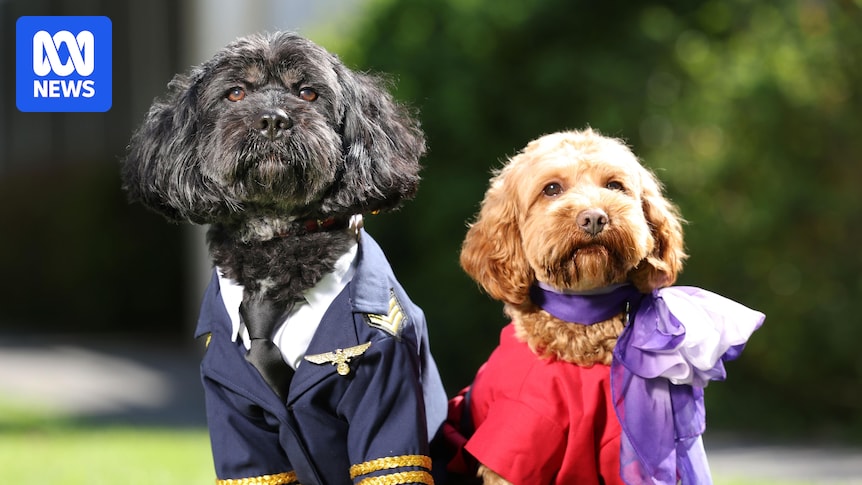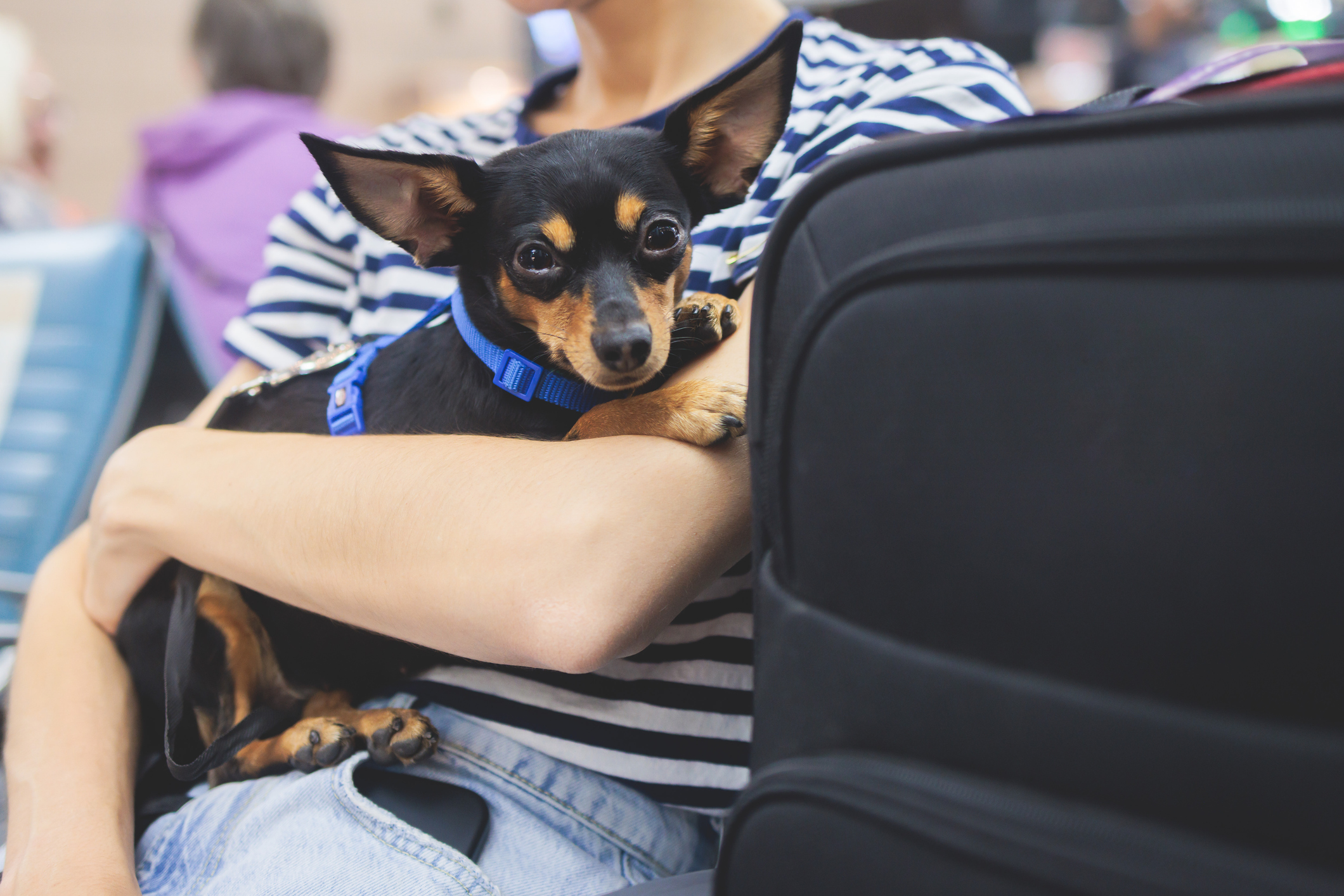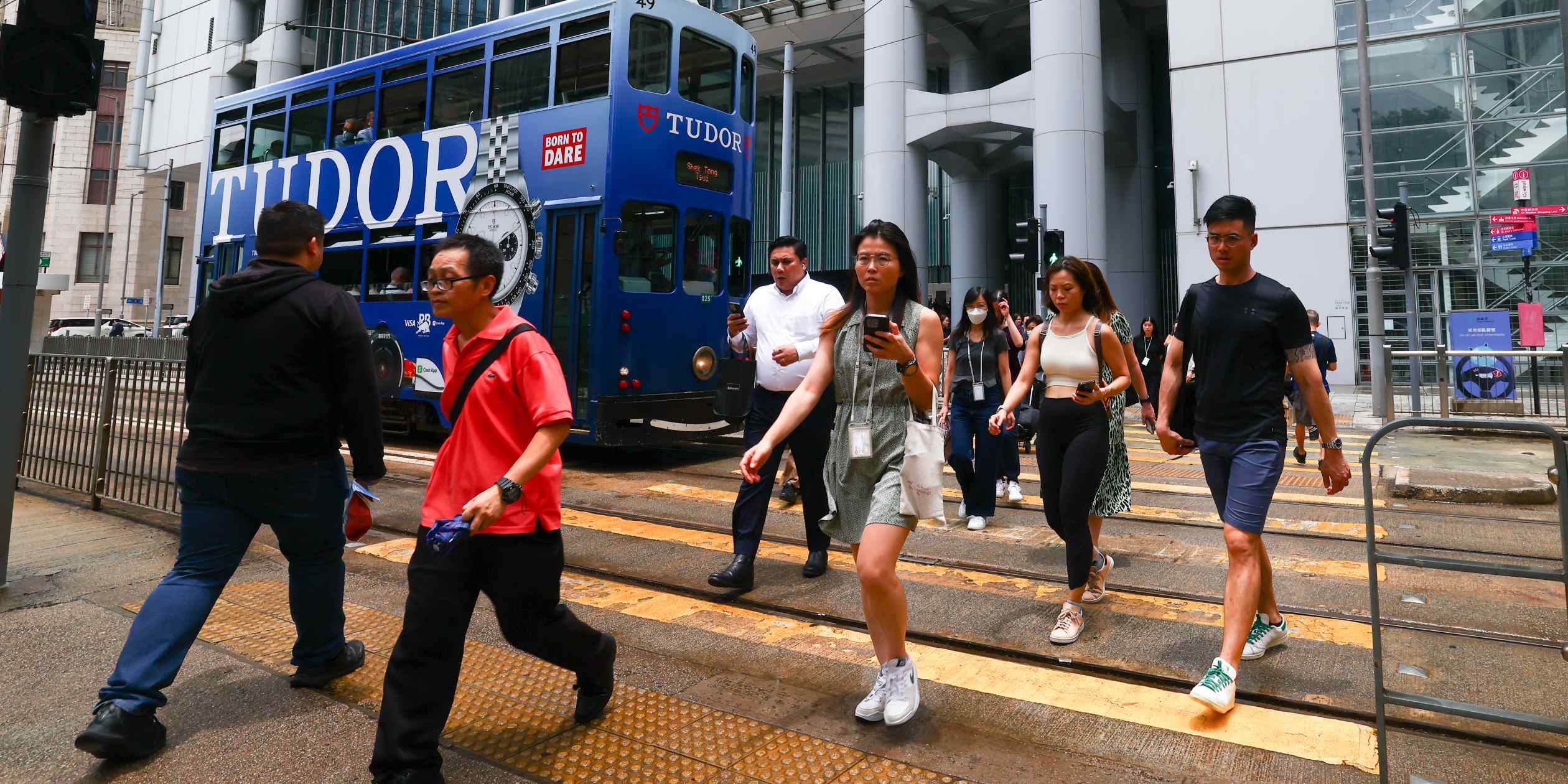More than a year after unveiling its plan to allow pets in the cabin, Virgin Australia says the service is on track to launch by the end of 2025 — although a key regulatory loophole means the final say will rest with the pilot.
The airline has now received the green light from Food Standards Australia New Zealand (FSANZ) to carry small animals in the cabin, a major regulatory hurdle that stalled the rollout after Virgin Australia first announced its plan in March last year.
Speaking at the CAPA Airline Leader Summit in Cairns, Virgin Australia CEO Dave Emerson said the delay was due in part to food laws.
New Virgin CEO Dave Emersen at the CAPA conference, where he announced pets would be allowed in-cabin. (ABC News: Kristy Sexton-McGrath)
“There were a lot of regulatory changes that needed to be put in place including … that under aviation regulations, an aeroplane is considered to be a restaurant for the purposes of food service regulation,” Mr Emerson said.
“And so, you’re not allowed to bring pets into a restaurant, so we had to go get the rules changed and get an exemption.
“That process is now finally completed, so we’re looking forward to launching pets onboard before the end of the year.”
Virgin says there will be designated rows for pet owners to book to bring their animals on board. (Supplied: Virgin Australia)
That change was quietly approved last month by FSANZ, which accepted Virgin’s application to amend the Food Standards Code, clearing the way for small pets like cats and dogs to travel in airline-approved carriers stowed under the seat in front of their owner.
“We assessed the microbiological food safety risks and found that, with appropriate risk management controls in place, the presence of pet cats and dogs in aircraft cabins presents a low risk to passengers,” a FSANZ statement said.
Former Virgin Australia CEO Jayne Hrdlicka first announced the plans in March last year. (Supplied: Virgin Australia)
A meeting of food ministers earlier this month approved the change to the Food Standards Code, stating the variation to the code applied to Australia only.
Virgin said it would introduce the new option on a limited number of domestic routes, with the busy Sydney–Melbourne corridor expected to be among the first.
Pilots still hold the leash
Despite the regulatory breakthrough, the final decision on whether animals are allowed on any individual flight will rest with the pilot in command, a grey area that effectively gives captains the power to refuse pets at their discretion.
Under Civil Aviation Safety Authority (CASA) rules, the pilot is responsible for the safety of everyone onboard and has broad authority over who and what can be carried.
That includes the right to deny travel to animals, including approved assistance animals, in rare cases where the safety or operational integrity of the flight could be affected.
It’s the first time an Australian commercial airline has offered in-cabin pet travel for domestic passengers.
Qantas does not allow pets in the cabin on any of its Australian services, and existing options for animal travel have been limited to the aircraft hold.
Under the new policy, pets must remain contained in an airline-approved carrier that fits under the seat and weighs no more than 8 kilograms, including the animal.
Only one pet is allowed per passenger. Travellers with pets will be seated in designated rows, separate from general seating, and animals must remain in their carriers at all time, including no roaming or sitting on laps.
While Virgin said customer demand for pets in cabins was strong, the airline has not indicated whether passengers would be able to opt out of sitting near animals.
In the United States, Delta, United, and American Airlines all allow small pets in the cabin, with fees ranging from $US95 to $US125 per flight.
In most cases, only dogs and cats are permitted, and carriers must meet strict size and ventilation requirements.
In Australia, travelling with pets for leisure has never been permitted on major carriers until now.
Assistance animals such as guide dogs are already allowed in the cabin under disability access laws, but many people still report issues.


